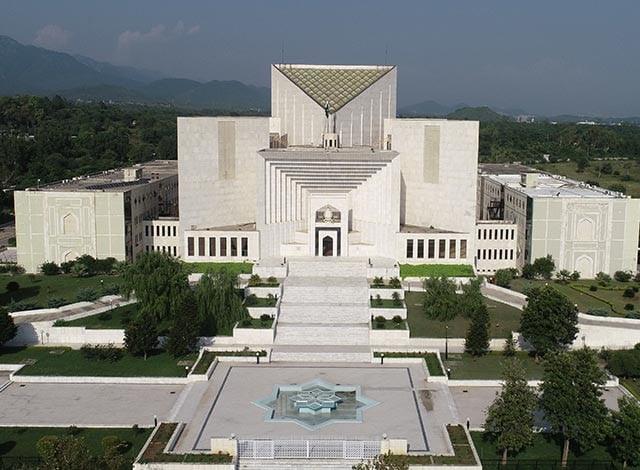ISLAMABAD:
The Supreme Court’s Constitutional Court on Wednesday requested clarification from the authorities as to why the Army Act was not applied to the cases related to the attack on the Army Public School (APS) in 2014.
The constitutional bench, headed by Justice Aminuddin Khan, heard an appeal within the court challenging the apex court’s decision against the military court’s trial of civilians. Defense Ministry lawyer Khawaja Haris continued his arguments.
During the hearing, Justice Jamal Khan Mandokhail questioned the necessity of amending the constitution to allow military trials over terrorism, and asked why such trials were not conducted earlier, despite the existence of martial law.
Haris argued that the nature of the crime determined whether the trial was held in a civilian or military court. He pointed out that if a civilian’s crime was linked to the armed forces, it fell under the jurisdiction of military courts.
However, Justice Mandokhail suggested that the intent of the perpetrator should be considered to determine whether the crime was against national interest. Haris clarified that military courts could try acts of terrorism linked to religious or terrorist groups under the Army Act, with or without constitutional amendments.
Justice Mandokhail inquired about the handling of important cases like the 2014 APS attack under the existing legal framework. Haris stated that the APS attack was linked to the military, but that it was not directly tried under the military courts.
He noted that the constitutional amendment covered additional crimes beyond military duty. Justice Mandokhel asked if a terrorist kidnapped an army man where the trial will take place.
The Ministry of Defense lawyer replied that if the trail allegedly could not take place in the military court, but the question would arise how the hypothesis would link it to the case in question.
Justice Muhammad Ali Mazhar noted that the court did not focus on the nature of the crime but only had to see whether the relevant sections of the Army Act were constitutional.
Justice Aminuddin Khan said the Supreme Court had to review the constitutional status of the law and the decision. Justice Mazhar said the court would have to see the comparative analysis as to what modus operandi was adopted for the military trial.
Haris maintained that if the Supreme Court upheld Sections 2(D)(1) and 2(D)(2) of the Army Act, challenges to the military courts would have to be dismissed. The bench also referred to the 21st constitutional amendment, which allowed military trials for terrorism cases after the APS attack.
Justice Naeem Akhtar Afghan noted that the amendment had been the subject of parliamentary debate and applied legal reasoning, while Justice Hassan Azhar Rizvi noted the emotional context in which the amendment had been approved.
Khawaja Haris defended Parliament’s role in passing the amendment and acknowledged the crucial role played by former Senate President in its passage. The Constitutional Court then adjourned the hearing until Thursday (today).



